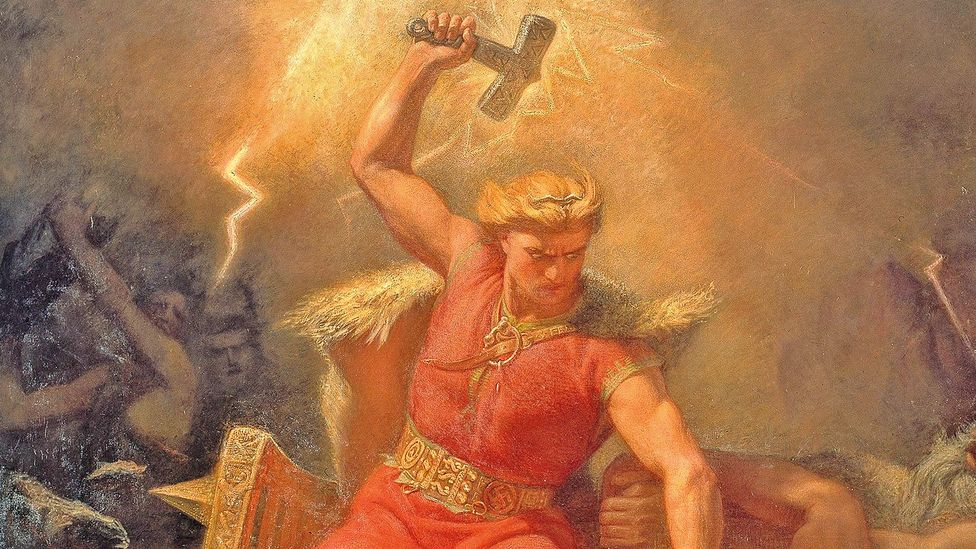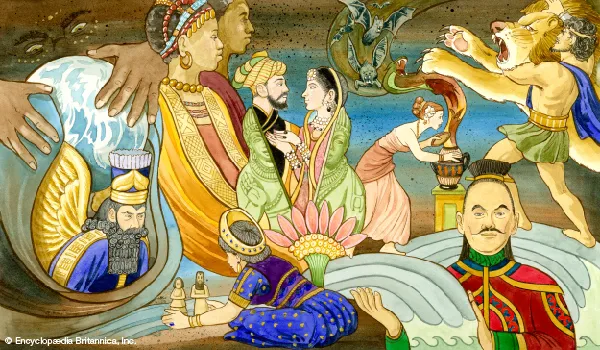Introduction
Folklore and mythology have played a significant role in shaping the cultures and beliefs of societies around the world. These captivating tales, passed down through generations, are not just stories; they are windows into the collective imagination and wisdom of our ancestors. In this article, we will embark on a journey through the rich tapestry of global folklore and mythology, exploring the enchanting stories that continue to resonate with us today.
The Power of Storytelling: Preserving Traditions
Storytelling has been an integral part of human culture since time immemorial. Folklore and mythology serve as a repository of cultural heritage, transmitting values, traditions, and moral lessons from one generation to the next. Let’s delve into the captivating world of folklore and mythology from different regions:

Celtic Mythology: Tales of Magic and Warriors
Celtic mythology is steeped in tales of mystical creatures, brave warriors, and ancient deities. From the legendary King Arthur and his Knights of the Round Table to the enchanting realm of Tir na nÓg, Celtic mythology weaves a captivating tapestry of magic and heroism.
Norse Mythology: Gods, Giants, and Epic Battles
Norse mythology takes us into the realms of gods and giants, exploring the adventures of mighty deities such as Odin, Thor, and Loki. The tales of the creation of the world, the epic battles of Ragnarök, and the Norse concept of Valhalla offer a glimpse into the ancient Norse worldview.
Greek Mythology: Gods, Heroes, and Legends
Greek mythology is renowned for its pantheon of gods, epic heroes, and timeless legends. From Zeus, the king of the gods, to the heroic feats of Hercules and the tragic love story of Orpheus and Eurydice, Greek mythology continues to captivate us with its tales of divine power, human triumphs, and tragic flaws.
African Folklore: Spirits, Ancestors, and Tricksters
African folklore encompasses a diverse range of traditions, reflecting the continent’s rich cultural tapestry. From Anansi the Spider, the mischievous trickster from West African folklore, to the Zulu tales of the powerful spirits known as the “Ancestors,” African folklore celebrates the connection between humans, nature, and the spiritual realm.
Indigenous Mythology: Nature Spirits and Creation Stories
Indigenous mythology is deeply rooted in the relationship between humans and the natural world. From the Dreamtime stories of the Aboriginal people in Australia to the Native American creation myths, indigenous mythology offers a profound understanding of our connection to the land, animals, and celestial forces.
FAQs (Frequently Asked Questions)
1. Are folklore and mythology the same?
Folklore and mythology share similarities but have distinct characteristics. Folklore refers to the traditional beliefs, customs, and stories of a particular culture or community. Mythology, on the other hand, often encompasses a system of religious or supernatural beliefs that explain the origins of the world, natural phenomena, and the roles of gods and heroes.
2. Why are mythology and folklore important?
Mythology and folklore play a crucial role in preserving cultural heritage, passing down moral values, and fostering a sense of identity and belonging within a community. These stories provide insights into the beliefs, traditions, and worldview of different cultures, allowing us to understand and appreciate the diversity of human experiences.
3. How do folklore and mythology influence modern culture?
Folklore and mythology continue to inspire and influence modern culture in various ways. Elements from these ancient stories can be found in literature, art, music, and films, providing a rich source of inspiration for creative expression. Additionally, mythological themes and archetypes often appear in contemporary storytelling, shaping narratives and capturing the imagination of audiences.
4. Are there similarities between different mythologies?
Yes, there are often similarities between different mythologies, particularly in themes and archetypes. Creation myths, heroic journeys, and the presence of gods and goddesses are recurring motifs found in various mythological traditions. These similarities may arise from common human experiences and the universal need to explain the mysteries of the world.
5. Can folklore and mythology teach us valuable lessons?
Absolutely. Folklore and mythology offer valuable lessons and insights into the human condition. These stories often explore universal themes such as love, betrayal, courage, and the consequences of human actions. They can provide moral guidance, encourage critical thinking, and inspire us to reflect on our own lives and choices.
6. Are there contemporary examples of folklore and mythology?
Yes, folklore and mythology continue to evolve and adapt to modern times. Urban legends, ghost stories, and contemporary myths surrounding popular figures or events can be seen as modern forms of folklore. Additionally, the incorporation of mythological elements in popular culture, such as the Marvel Cinematic Universe’s adaptation of Norse mythology in Thor, demonstrates the enduring relevance of these ancient tales.
Conclusion
Folklore and mythology are the threads that connect us to our cultural roots and ignite our imagination. These timeless stories have shaped civilizations, imparted wisdom, and provided a glimpse into the mysteries of the world. By exploring the enchanting tales of different cultures, we gain a deeper understanding of our shared humanity and the diverse ways in which we perceive and interpret the world around us.
============================================
